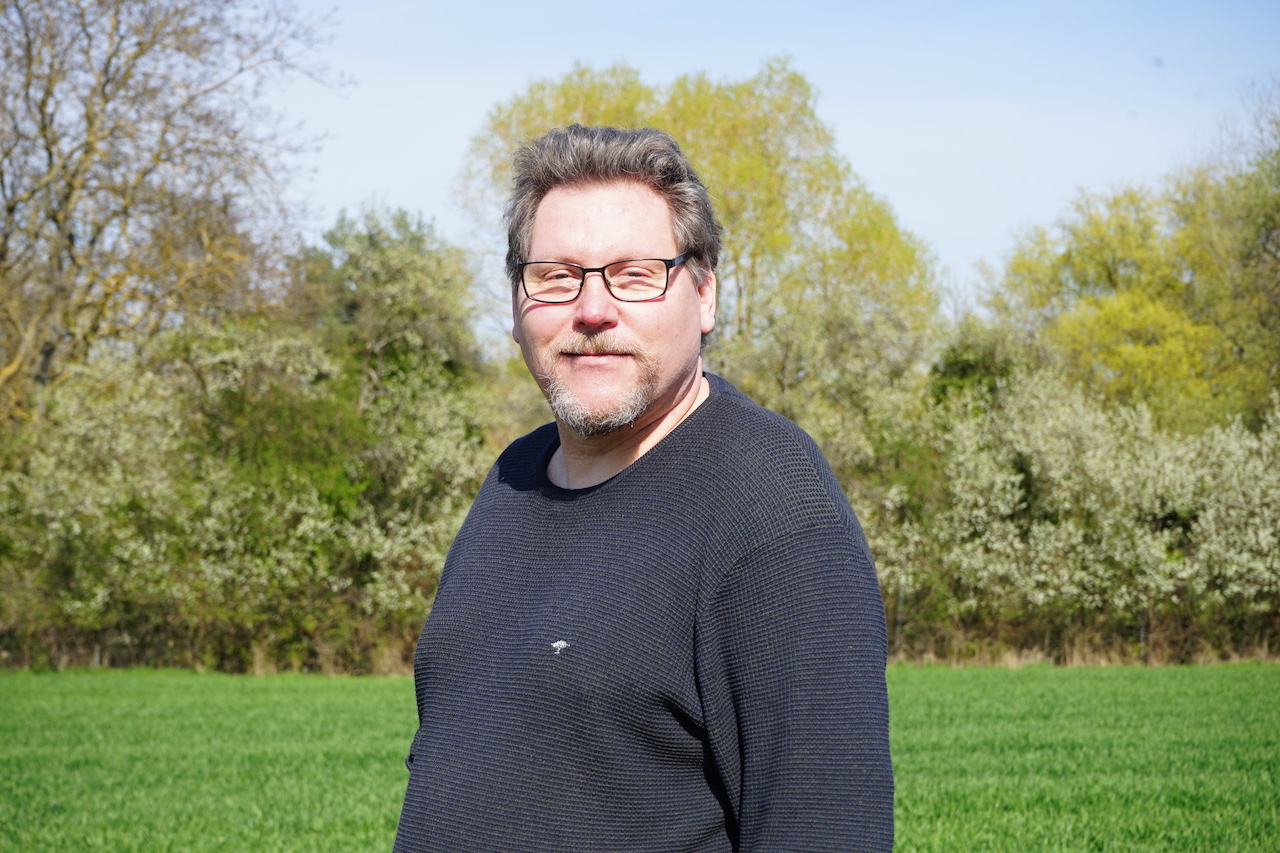Thomas Porschen, 57, married and a real «Kölscher Jung» (“a real boy from Cologne”), is a well-known and highly appreciated figure in the German and European epilepsy self-help community. For many years, he has been helping epilepsy sufferers at all levels with his local and national commitment to education, self-help, prevention, and politically through networking and association work.

As a young adult, Thomas was diagnosed with epilepsy following angioma surgery. For a long time, he was troubled by severe tonic-clonic seizures that occurred at night and, among other things, during the day at work or while shopping. His previous everyday life, even with friends his own age, changed because of the seizures. At some point, Thomas decided to join a self-help group and quickly found out that he could participate well in everyday life with his form of epilepsy compared to many others and has been intensively involved in education, self-help and prevention.
Medical jargon versus comprehensibility for epilepsy patients
Epilepsy is a chronic disease and, as with all diseases, epilepsy is characterized by many medical terms that sufferers have to cope with. «Just when patients got used to the term anti-epileptic drugs (in English AED = Anti Epileptic Drugs), a new nomenclature was introduced and now only the new term ASM (=Anti Seizure Medication) is to be used, for which there is still no good German translation.»
For Thomas, it is important that the technical language used and the problems and risks associated with epilepsy are understandable and applicable to patients. From the perspective of those affected, the focus should be on everything that helps patients cope with their disease and everyday life.
In particular, this applies to education and assistance in the area of SUDEP «Sudden Unexpected Death in Epilepsy «. As early as the 1990s, Thomas saw SUDEP as a focus area for himself. «A key experience for me was the 100-odd page publication of Epilepsy Australia and Epilepsy Bereaved from 2005.» All of the deceased were between the ages of 11 and 31. The fates touched him deeply and have greatly influenced his work ever since.
«In Germany at that time, the topic of SUDEP was not widely discussed among professionals and patient education was not self-evident.» Since then, Thomas has tried to get the medical community, patients and relatives more interested in the topic. Only in the last few years has SUDEP been talked about more openly.
SUDEP and patient education
Even though Thomas has been seizure-free for many years, he does not always feel safe. He asked his doctor if they could please educate him about his personal SUDEP risk and whether he might be at risk for SUDEP despite being seizure-free, since his seizure pattern includes nocturnal bilateral tonic-clonic seizures, plus he sleeps alone. The doctor told him that one can die from other things, like other normal people (of which he is one by being seizure-free for many years). She pointed out to him that he is welcome to get a seizure monitoring device. Thomas feels well-advised by the conversation. It is important to Thomas that an educational interview is documented and that a patient later receive a summary or patient letter about the educational interview in writing.
New Epilepsy Guidelines 2023
At patient events, many questions are asked about managing daily life and reducing risks related to epilepsy. People with the condition want to know what is happening in the market and what assistive devices are available. The market is in motion and from apps to wearables, there is a lot of innovation on offer. For many affected people, it is difficult to get an overview and this requires support from the professional world, health insurance companies, epilepsy counselling centers, and self-help groups.
«The most important questions here are the W-questions: What is it? Why with me? How does it work? Who does it affect? How common is it? What are possible triggers? What can I do to prevent it? What can I do in an emergency? What can I do as an immediate family member (parent, partner) to prevent it from happening? Where can I find help?»
In 2023, the new epilepsy guidelines (in Germany) are to be presented. From the point of view of many of those affected, it is necessary that information is recorded in writing as part of the doctor’s consultation and that patients also receive specialist information that is formulated in a comprehensible way and in which various help options are clearly presented (such as seizure monitoring with NightWatch), with a mention of mediators or contacts.
When Thomas is in conversation with other epilepsy patients, it is predominantly about two central topics: Safety and improving quality of life. And this in the simplest and most understandable way possible.
About Thomas Porschen
Thomas Porschen has been the contact person of the German Epilepsy Association for the International Bureau for Epilepsy (IBE). The international umbrella organization of self-help and lay organizations for epilepsy and Vice-Chair of the European Regional Executive Committee (EREC) of the IBE as well as the contact person of the German Epilepsy Association for questions regarding sudden death from epilepsy (SUDEP) since 2021. Since 2022 he is a stopSUDEP ambassador for the Oskar Killinger Foundation. As of December 2022, he is also a NightWatch Ambassador for Germany. He likewise leads a regional epilepsy support group (currently digital meetings) and is also involved nationally with the Hesse state association, among others. Direct email contact to Thomas: info@epilepsie-online.de
Dear Thomas, thank you very much for your much-appreciated story and effort!
The NightWatch-Team!
Story by Birgit-Elisabeth Langen